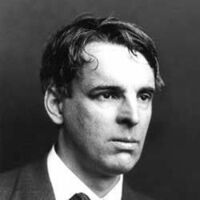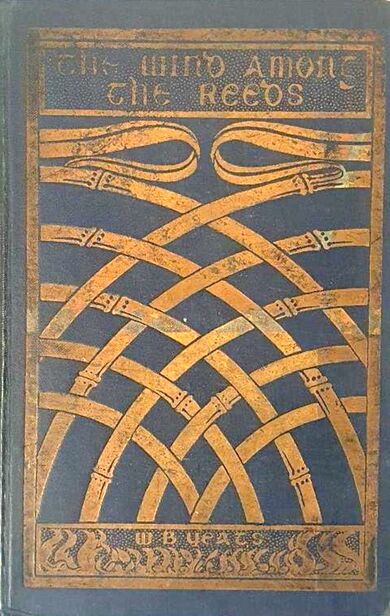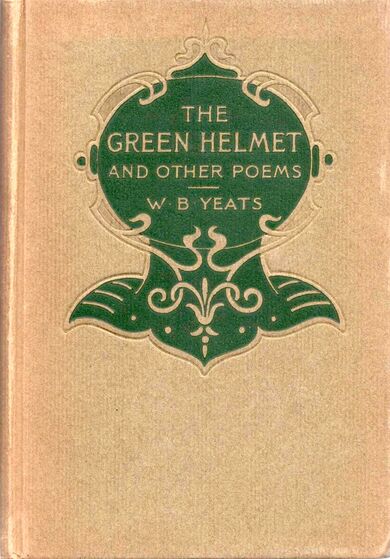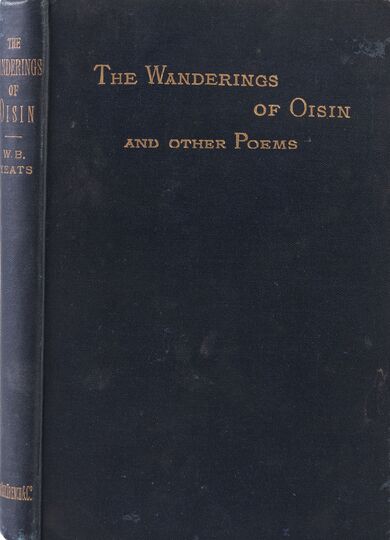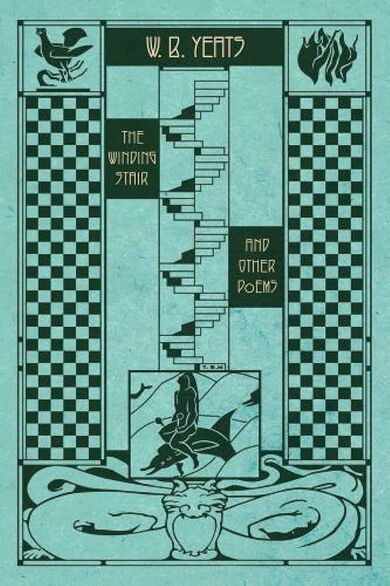The Phases of the Moon
AN old man cocked his ear upon a bridge;
He and his friend, their faces to the South,
Had trod the uneven road. Their boots were soiled,
Their Connemara cloth worn out of shape;
They had kept a steady pace as though their beds,
Despite a dwindling and late risen moon,
Were distant. An old man cocked his ear.
Aherne What made that sound?
Robartes A rat or water-hen
Splashed, or an otter slid into the stream.
We are on the bridge; that shadow is the tower,
And the light proves that he is reading still.
He has found, after the manner of his kind,
Mere images; chosen this place to live in
Because, it may be, of the candle light
From the far tower where Milton’s platonist
Sat late, or Shelley’s visionary prince:
The lonely light that Samuel Palmer engraved,
An image of mysterious wisdom won by toil;
And now he seeks in book or manuscript
What he shall never find.
Aherne Why should not you
Who know it all ring at his door, and speak
Just truth enough to show that his whole life
Will scarcely find for him a broken crust
Of all those truths that are your daily bread;
And when you have spoken take the roads again?
Robartes He wrote of me in that extravagant style
He had learnt from Pater, and to round his tale
Said I was dead; and dead I chose to be.
Aherne Sing me the changes of the moon once more;
True song, though speech: ‘mine author sung it me.’
Robartes Twenty-and-eight the phases of the moon,
The full and the moon’s dark and all the crescents,
Twenty-and-eight, and yet but six-and-twenty
The cradles that a man must needs be rocked in:
For there’s no human life at the full or the dark.
From the first crescent to the half, the dream
But summons to adventure and the man
Is always happy like a bird or a beast;
But while the moon is rounding towards the full
He follows whatever whim’s most difficult
Among whims not impossible, and though scarred
As with the cat-o’-nine-tails of the mind,
His body moulded from within his body
Grows comelier. Eleven pass, and then
Athenae takes Achilles by the hair,
Hector is in the dust, Nietzsche is born,
Because the heroes’ crescent is the twelfth.
And yet, twice born, twice buried, grow he must,
Before the full moon, helpless as a worm.
The thirteenth moon but sets the soul at war
In its own being, and when that war’s begun
There is no muscle in the arm; and after
Under the frenzy of the fourteenth moon
The soul begins to tremble into stillness,
To die into the labyrinth of itself.
Aherne Sing out the song; sing to the end, and sing
The strange reward of all that discipline.
Robartes All thought becomes an image and the soul
Becomes a body: that body and that soul
Too perfect at the full to lie in a cradle,
Too lonely for the traffic of the world:
Body and soul cast out and cast away
Beyond the visible world.
Aherne All dreams of the soul
End in a beautiful man’s or woman’s body.
Robartes Have you not always known it?
Aherne The song will have it
That those that we have loved got their long fingers
From death, and wounds, or on Sinai’s top,
Or from some bloody whip in their own hands.
They ran from cradle to cradle till at last
Their beauty dropped out of the loneliness
Of body and soul.
Robartes The lovers’ heart knows that.
Aherne It must be that the terror in their eyes
Is memory or foreknowledge of the hour
When all is fed with light and heaven is bare.
Robartes When the moon’s full those creatures of the full
Are met on the waste hills by country men
Who shudder and hurry by: body and soul
Estranged amid the strangeness of themselves,
Caught up in contemplation, the mind’s eye
Fixed upon images that once were thought,
For separate, perfect, and immovable
Images can break the solitude
Of lovely, satisfied, indifferent eyes.
And thereupon with aged, high-pitched voice
Aherne laughed, thinking of the man within,
His sleepless candle and laborious pen.
Robartes And after that the crumbling of the moon.
The soul remembering its loneliness
Shudders in many cradles; all is changed,
It would be the World’s servant, and as it serves,
Choosing whatever task’s most difficult
Among tasks not impossible, it takes
Upon the body and upon the soul
The coarseness of the drudge.
Aherne Before the full
It sought itself and afterwards the world.
Robartes Because you are forgotten, half out of life,
And never wrote a book your thought is clear.
Reformer, merchant, statesman, learned man,
Dutiful husband, honest wife by turn,
Cradle upon cradle, and all in flight and all
Deformed because there is no deformity
But saves us from a dream.
Aherne And what of those
That the last servile crescent has set free?
Robartes Because all dark, like those that are all light,
They are cast beyond the verge, and in a cloud,
Crying to one another like the bats;
And having no desire they cannot tell
What’s good or bad, or what it is to triumph
At the perfection of one’s own obedience;
And yet they speak what’s blown into the mind;
Deformed beyond deformity, unformed,
Insipid as the dough before it is baked,
They change their bodies at a word.
Aherne And then?
Robartes When all the dough has been so kneaded up
That it can take what form cook Nature fancy
The first thin crescent is wheeled round once more.
Aherne But the escape; the song’s not finished yet.
Robartes Hunchback and saint and fool are the last crescents.
The burning bow that once could shoot an arrow
Out of the up and down, the wagon wheel
Of beauty’s cruelty and wisdom’s chatter,
Out of that raving tide is drawn betwixt
Deformity of body and of mind.
Aherne Were not our beds far off I’d ring the bell,
Stand under the rough roof-timbers of the hall
Beside the castle door, where all is stark
Austerity, a place set out for wisdom
That he will never find; I’d play a part;
He would never know me after all these years
But take me for some drunken country man;
I’d stand and mutter there until he caught
‘Hunchback and saint and fool,’ and that they came
Under the three last crescents of the moon,
And then I’d stagger out. He’d crack his wits
Day after day, yet never find the meaning.
And then he laughed to think that what seemed hard
Should be so simple—a bat rose from the hazels
And circled round him with its squeaky cry,
The light in the tower window was put out.
The Wild Swans at Coole. 1919.

